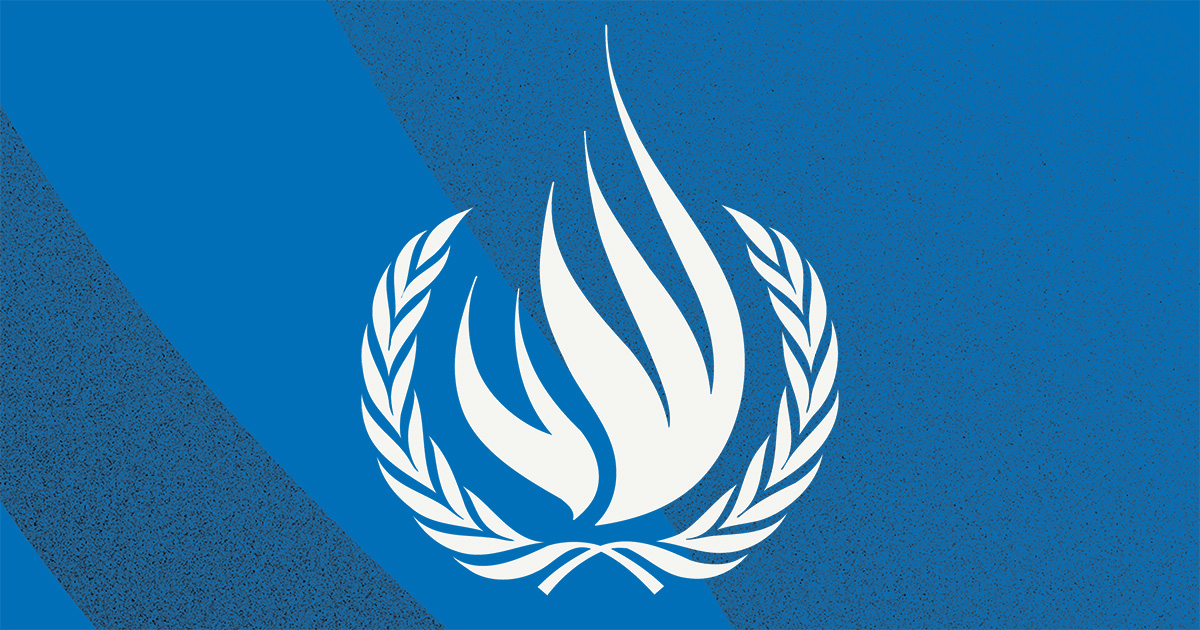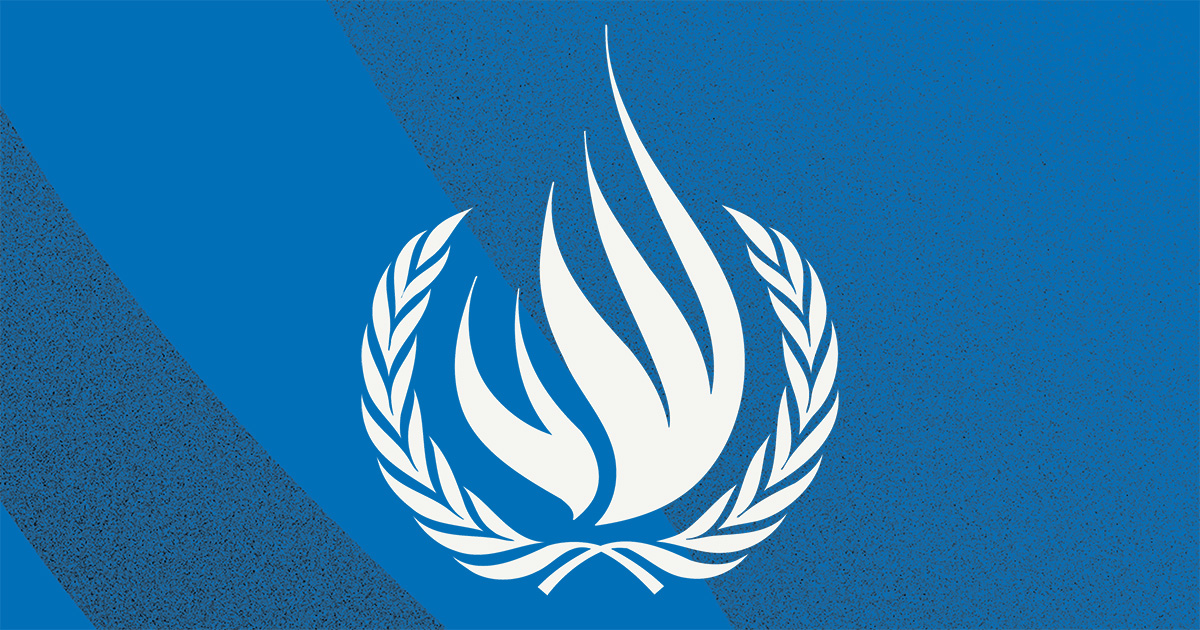
DELIVERED BY
Assistant Secretary-General for Human Rights Ilze Brands Kehris
AT
Security Council Briefing: Threats to International Peace and Security
Mr. President
Distinguished Members of the Council,
Precisely ten months ago, on 17 January, I briefed this Council as a representative of the Office of the High Commissioner for Human Rights on issues related to the freedom of religion or belief and the broader human rights dimension of the war in Ukraine.
Since my last briefing, the civilian toll of the full-scale armed attack by the Russian Federation against Ukraine has unfortunately increased considerably further. To date, OHCHR has recorded nearly 10,000 civilians killed and over 18,000 injured (compared to 7,000 and 11,000, respectively, reported to the Council on 17 January).
The conflict has also inflicted extensive damage on Ukrainian civilian infrastructure, homes, schools, and medical facilities, and in recent months, the port facilities and grain silos that enable Ukraine to export food. As winter approaches and temperatures start to drop below freezing, humanitarian needs will be magnified. The most vulnerable – the elderly, those with disabilities and the displaced living in collective centers – will be most at risk.
The impact of the war extends beyond the high casualties and broad physical destruction, reaching deep into the fabric of Ukrainian society. It is in this context that we are also monitoring the situation of freedom of religion across Ukraine, in both territory controlled by the Government of Ukraine and territory occupied by the Russian Federation.
Tensions between the Ukrainian Orthodox Church, which has historic links to the Moscow Patriarchate of the Russian Orthodox Church, and the Orthodox Church of Ukraine, which obtained autocephaly under the Constantinople Patriarchate in 2019, including over ownership of land and buildings, increased following the Russian Federation’s full-scale armed attack in February 2022, in some cases manifesting in violent incidents.
Mr. President,
These tensions have affected freedom of religion in the territory controlled by the Government of Ukraine, as documented in consecutive recent Human Rights Monitoring Mission reports.
Firstly, since February 2022, OHCHR has documented ten cases of physical violence and six cases of threatened violence resulting from disputes between parishioners of different Orthodox communities. Regrettably, Ukrainian law enforcement’s response in these cases has been inadequate, failing to sufficiently investigate incidents and take action to protect members of the Ukrainian Orthodox Church. Half of these incidents occurred in March and April of this year, and the number of incidents subsequently decreased. In this regard, the recommendations in the Human Rights Committee Concluding Observations on Ukraine from February 2022 are still relevant, including the protection of places of worship against acts of violence, intimidation and vandalism and ensuring that all cases of violence are thoroughly and promptly investigated and that those responsible are sanctioned.
Secondly, since February 2022, of the over 6,600 criminal cases brought against individuals for collaboration and other conflict-related crimes in Ukraine, 68 have involved Ukrainian Orthodox Church clergy members, according to Ukrainian authorities. OHCHR is monitoring 44 of these cases. It is particularly important to ensure full respect for due process and fair trial rights in these extremely sensitive cases. In at least 26 cases involving UOC clergy members, we have identified concerns regarding the fairness of the criminal proceedings, such as the accused not having access to a lawyer during a search of his home or pressure from prosecutors to confess in order to obtain lighter charges or be included in a prisoner exchange. Our findings have come in the context of our broader reporting on due process and fair trial issues that have arisen in proceedings against conflict-related detainees as a whole.
Thirdly, OHCHR is closely monitoring how legislative developments in Ukraine may impact enjoyment of freedom of religion and has in previous HRMMU reports expressed concern over the cumulative impact of Government actions targeting UOC that could be discriminatory.
In October 2023, Ukraine’s Parliament approved in its first reading a set of draft amendments to the law on religious organizations. This would establish a procedure for the dissolution of “religious organizations affiliated with influence centers, the management of which is located in a country, which carries out armed aggression against Ukraine.” This draft law is now being considered in a committee in preparation for a second reading. We urge lawmakers to carefully consider Article 18 of the International Covenant on Civil and Political Rights and the related Human Rights Committee jurisprudence. International law permits restrictions on the freedom to manifest religion only if they are prescribed by law and necessary to protect public safety, order, health or morals, or the fundamental rights and freedoms of others. This is to be narrowly interpreted, and limitations must be directly related and proportionate to the specific purpose pursued.
As a next step, we would urge lawmakers to clearly define the specific legitimate aim of the proposed restrictions and ensure their necessity and proportionality and revise the text accordingly. I invite Ukrainian lawmakers to make use of the expert analysis of the United Nations and other international organizations – as it has done for other laws – to assess whether the proposed means are clearly defined and the least intrusive ones possible for achieving the specific aim, and whether the proposed amendments comply with international legal standards.
Mr. President,
OHCHR also has serious concerns about freedom of religion in Ukrainian territory occupied by the Russian Federation which could also be considered discriminatory. The prosecution of minorities and detentions and torture of clergy raise serious concerns about discrimination on the grounds of religious belief in occupied territory. International humanitarian law obliges the occupying Power to respect the laws in force in the country. However, the Russian Federation applies its own laws in occupied territory, which has resulted in restrictions on religious minorities.
Previous HRMMU reports have also documented cases of enforced disappearance, arbitrary detention, torture or other ill-treatment, and unlawful deportations perpetrated by Russian armed forces against clergy and members of the Ukrainian Greek Catholic and Chirstian Evangelical communities in Zaporizhie, Kherson and Kharkiv region.
In Crimea, Russian authorities have prosecuted members of Jehovah’s Witnesses and Hizb ut-Tahrir, two organizations that are prohibited in the Russian Federation, but not in Ukraine, sometimes sentencing them to long prison terms. Since February 2022, we have documented the prosecution of nine members of Jehovah’s Witnesses. Most recently, on 24 August 2023, following house searches, the FSB arrested six Crimean Tatar men for their alleged membership of Hizb ut-Tahrir. After 24 February 2022, Russian authorities arrested eighteen Crimean Tatar men in Crimea, for suspected involvement with Hizb ut-Tahrir. They potentially face long-term sentences in prison.
We have also seen that occupying authorities have taken action against the Orthodox Church of Ukraine. In Simferopol, the occupying authorities evicted the Orthodox Church of Ukraine from the cathedral, depriving parishioners of their last place of worship in the city.
Our Human Rights Monitoring Mission in Ukraine has reported individual cases of arbitrary detention and torture of clergymen in occupied territory Last month, the documented arbitrary detention of two priests from the Orthodox Church of Ukraine in the occupied Donetsk oblast was reported; they were accused of anti-Russian and extremist behavior for publicly expressing support for the Ukrainian authorities.
The last Human Rights Monitoring Mission periodic report issued in October included the arbitrary detention of two Orthodox clergymen in occupied territory, one of whom reported having been tortured. In May of this year, a pro-Ukrainian priest from Kherson oblast was released after spending 262 days in detention, where he was reportedly tortured; formal charges were never brought against him, but he reported having been questioned repeatedly about why he conducted church services in Ukrainian and prayed for Ukrainian forces. These cases of alleged torture of clergy fit into a pattern of widespread torture of civilian detainees, as publicly reported by HRMMU.
Concerns regarding the enjoyment of freedom of religion in Ukraine, including in occupied territory, have increased since February 2022. Restoring peace and respect for the United Nations Charter and international law is urgent. While the war and occupation persist, we call on all parties to ensure that all people in Ukraine have full freedom to manifest and practice their religion or belief, in line with international human rights law.
Thank you.







